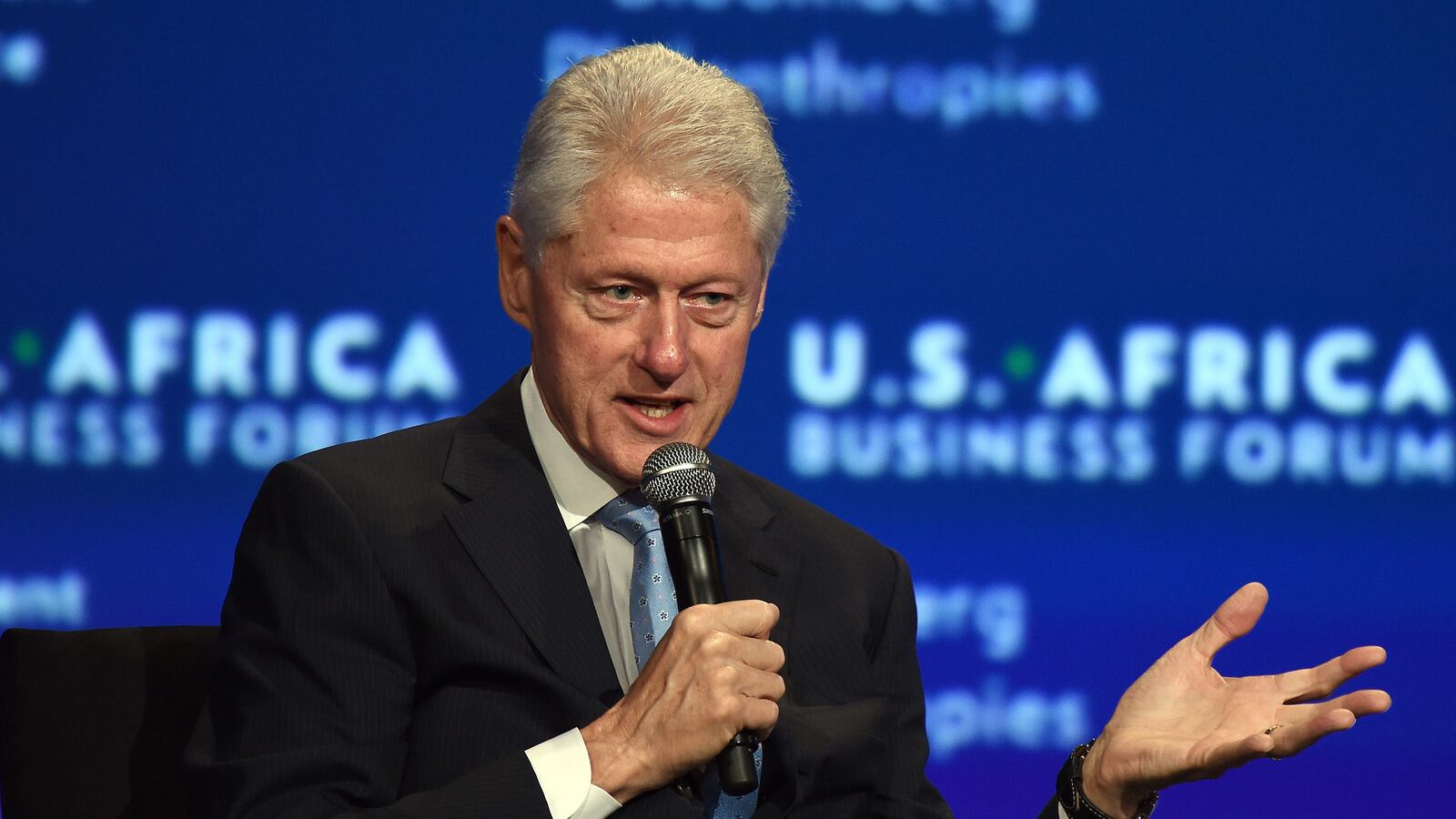What most Americans know about Rwanda probably comes from the movie Hotel Rwanda, the true story of a hotel clerk who sheltered more than a thousand Tutsis from a Hutu militia’s murderous rampage. And President Clinton famously said his biggest regret was doing nothing to stop the 1994 Rwandan genocide. So it may be a shock to discover that 20 years later, the country is being touted as an African success story, an example of what is possible on the long-troubled continent.
As the first U.S.-Africa Leaders Summit got under way in Washington this week, the good news meant to showcase investment opportunities and promote trade deals was tempered by the outbreak of Ebola in four countries and the revelation that Boko Haram in Nigeria is training young girls as suicide bombers. “All the headlines are bad, but the trend lines are good,” Clinton said at a dinner Monday night to honor former U.N. ambassador and civil rights icon Andrew Young.
Extreme poverty is down across Africa, Clinton said, singling out Rwanda, where President Paul Kagame gave every farmer a Jersey cow, boosting the livelihoods of 700,000 people. (Jersey cows produce 40 liters of milk a day, far more than the average Rwandan cow.)
Clinton said the late Ron Brown, who served as his secretary of commerce, and Young were the first to tell him that humanitarian assistance and championing human rights were not enough, “that I had to tap their entrepreneurial spirit.” American investment in roads and infrastructure, fiber-optic cable, and sustainable energy promises “a good rate of return to the conscience and to the bank book,” Clinton said.
Charles Edelstein can vouch for that. As the former CEO of Apollo Group, a large education holding company, Edelstein is helping Rwanda with its higher education. When he first met Kagame, he asked the president how in a country where per capita income is $750 a year (or $2 a day) he is supporting the roads and hotels and important infrastructure going up everywhere. “It’s remarkable how far aid can go if you don’t put it in your pocket,” Kagame told him.
“He’s very focused on keeping corruption at bay,” says Edelstein, adding that he greatly admires Kagame and the way he made the transition into governing after leading the rebel forces that ended the genocide. Edelstein calls the Rwandan president “the next Nelson Mandela,” noting that one of Kagame’s closest Cabinet members is the man who murdered his sister. “The whole thing of governance is so important to give people the confidence they can invest,” says Edelstein.
Clinton was at the event at the Mayflower Hotel to introduce Young, his friend of 30 years, and to bask in the accolades of the visiting leaders. “No American citizen has worked harder or longer to forge closer ties of trade, investments, and joint ventures between the people in Africa and people in the U.S. than Andy Young,” Clinton said.
If there’s a patron saint for capitalism in Africa, it’s Young. Since President Carter sent him on a trade mission in the 1970s with instructions written on a little tab of paper—“I want you to go to Africa and ask African leaders what they expect of this administration”—he has been a tireless promoter of trade and investment as the road to prosperity for Africa and the United States. He says he is over the moon about the summit and the way business elites are stepping up to the challenge of Africa. On Tuesday afternoon, President Obama announced new deals in energy, banking, aviation, and construction totaling more than $14 billion.
“What President Obama has given us an opportunity to do is to define a vision for the future, not just for Africa but for the whole planet,” Young said. Pause. “I trust politicians.” Pause. “But not completely. Politicians always worry about their own survival. Businesspeople, on the other hand, have to think about the future.” The millionaires and billionaires in the audience loved it; they have the longer perspective, they can be trusted. They clapped long and hard.
A preacher with a keen sense of his audience, Young admitted that it “sounds outrageous to say, but Ebola is nothing new. It just never hit white people. Now that it hits white people, we get all panicky about it.” That got a lot of knowing laughter.
Young also took on China’s aggressive investment in Africa, a topic much discussed by summit attendees. “I welcome China to Africa because Africa is big enough to absorb China,” he said. “The only problem is China is taking more than they’re leaving.” Young said he views this historic summit meeting in Washington as “the beginning of a new age of globalization.” Africa needs investment; the U.S. needs trade and jobs. “Without Africa, the world slips into recession,” Young declared. For investors, the prospect of more Rwandas has a very different meaning than it did a generation ago.





